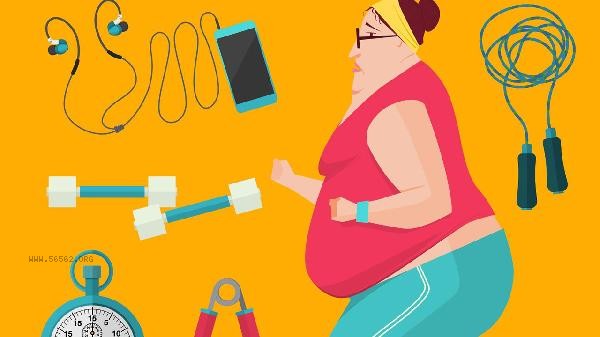Losing weight can lead to menstrual disorders, osteoporosis, impaired fertility, and other health problems. Rapid weight loss caused by excessive dieting or vigorous exercise can interfere with the hypothalamic pituitary ovarian axis function, leading to amenorrhea.

1. Endocrine disorders
When the body fat percentage is below the health threshold, the level of leptin in the body decreases, affecting the secretion of gonadotropin-releasing hormone and leading to insufficient estrogen synthesis. This state may be accompanied by menopausal like symptoms such as dry skin, emotional fluctuations, and hot flashes, and long-term failure to correct it may increase the risk of polycystic ovary syndrome.
2. Osteoporosis
Estrogen deficiency can accelerate bone loss, leading to a significant decrease in bone density within 6-12 months. Young women may experience lower back pain, joint stiffness, and a fracture risk that is more than three times higher than their peers, with some bone injuries being irreversible.
3. Impaired fertility
Prolonged amenorrhea for more than 3 months may cause ovarian atrophy and thinning of the endometrium. Even after regaining weight, some patients still need medication to induce ovulation, which reduces the probability of natural conception and the success rate of assisted reproductive therapy.

4. Decreased metabolic rate
The body activates a famine protection mechanism, and the basal metabolic rate can be reduced by 20% -30%. Manifested as chills, constipation, and hair loss, it is more likely to experience retaliatory weight rebound when returning to a normal diet later on.
5. Risk of psychological disorders
There is a bidirectional association between long-term amenorrhea and anxiety and depression, with some patients experiencing body image disorders or abnormal eating behavior. About 50% of patients with anorexia nervosa have amenorrhea symptoms.

It is recommended to adopt a gradual weight loss strategy, with a weekly weight loss of no more than 0.5-1 kilogram and a daily intake of no less than 1200 calories. Prioritize high protein and iron rich foods such as lean meat and animal liver, and combine them with low-intensity exercises such as yoga and brisk walking. If amenorrhea occurs for more than 3 months, it is necessary to seek medical examination for six hormone levels and bone density. If necessary, estrogen and progesterone cycle therapy should be used under the guidance of a doctor. Regularly monitor changes in body weight and fat to avoid excessive reliance on extreme weight loss methods.









Comments (0)
Leave a Comment
No comments yet
Be the first to share your thoughts!